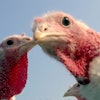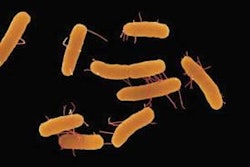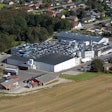The FY2009 Federal budget will eliminate the United States Department of Agriculture (USDA) Avian Diseases and Oncology Laboratory (ADOL) in East Lansing, MI and the Animal Biosciences and Biotechnology Laboratory (ABBL) in Beltsville, MD. Both facilities conduct basic research which contributes to the technical superiority of the U.S. poultry industry. The ADOL is unique as the only research facility dedicated to Marek’s Disease (MD) and lymphoid leucosis (LL). The ADOL is a World Health Organization (World Organisation for Animal Health) WHO/OIE Reference Laboratory for MD and is a designated Center of Excellence in tumor research. Scientists at this Institute played a major role in developing MD vaccine in 1970 along with the U.K. Houghton Poultry Laboratory, which has since closed. The ADOL played an important role in resolving the problem of vertically transmitted ALV-J infection during the 1990s and the problem of contamination of vaccines with LL. Both of these conditions could reoccur and would require the intervention of a competent group of scientists. The ADOL is the repository of special lines of chickens necessary for research into oncogenic diseases and is staffed by scientists and technical support personnel with invaluable knowledge and abilities.
The ABBL is at the cutting edge of avian immunology and molecular genetics including important programs in the mechanisms of immunity against coccidiosis which may lead to innovative vaccines against protozoal diseases. The ABBL is investigating mechanisms which regulate feed conversion efficiency, reproduction and is a repository of specific genetic lines. As with the sister unit, the ABBL incorporates laboratories, equipment and personnel dedicated to basic research in relatively narrow fields which are not pursued by industry.
In 2003 it was proposed that the work conducted at the ADOL would be divided between the Southeast Poultry Research Laboratory in Athens GA and the ABBL, with appropriate reassignment of personnel and resources. The new budget presumes outright closure of both units. If this were to occur, the collective knowledge of the scientists at both facilities and the synergy from their interaction would be irretrievably lost.
Informed participants in the poultry industry, mindful of the contributions of the laboratories have justifiably initiated a campaign of support for retention of funding. An equitable resolution would involve a moratorium on closure until a program based on the rationalization plan of 2003 can be implemented.
The House Committee on Appropriations, Subcommittee on Agriculture will be reviewing funding during the last week in March and it is hoped that the funding for FY 2009 will be restored for the benefit of the industry and consumers.




.jpg?auto=format%2Ccompress&fit=crop&h=167&q=70&w=250)














